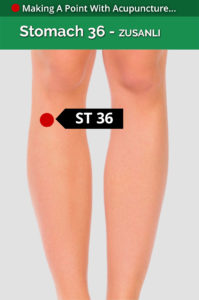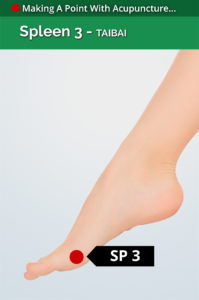Should I get acupuncture even when I’m not sick? This is a question I get often.
For thousands of years practitioners of acupuncture & Traditional Chinese Medicine (or TCM) have emphasized the importance of preventing illness and disease. So the answer is yes, by definition acupuncture and TCM work to keep the body in balance, not only to revive you when you when stricken by illness.

Going to the doctor when healthy is an obscure thought to those in the Western medical system. TCM practitioners look to many aspects of their patient’s lives beyond the physical aches and pains. According to TCM, there are many contributing factors that can bring the body out of balance. These include both internal and external factors such as seasonal changes, diet, physical activity, and emotional wellbeing.
Western allopathic medicine usually doesn’t recognize the role of emotions in creating illness beyond acknowledging stress exacerbates or causes 80 percent of all illnesses. According to TCM theory, specific emotions are linked to specific parts of the body: being stuck on any one emotion can bring that part of the body out of balance. Acupuncture and TCM can help us stay healthy by balancing these tendencies before chronic imbalances set in.
In one of the oldest books on TCM, “The Inner Classics of the Yellow Emperor,” compiled around 100 B.C.E., it’s written that excess joy slows and scatters qi, excess anger causes qi to ascend, excess sadness and grief weakens qi, excess worry knots and binds qi, fear descends qi and fright induces chaotic qi. The good news is each excessive emotions can be ‘harnessed,’ transformed and channeled into a virtuous emotion, which restores harmony and wellbeing. This transformation of emotions from excess to virtue is a vital aspect of the Yang-Sheng or preventative branch of Traditional Chinese Medicine.
Among the most common of excess emotion is the tendency of overthinking, worry and rumination; this will tend to result in digestive issues and/or metabolism concerns, as well as muscular tension and pain. In order to maintain optimal health one must learn to transform overthinking and worry into the virtue of creativity and dynamic insight.
Developing a regular meditation practice, even five to ten minutes once a day, can make a difference! You will develop the discipline to redirect worry and overthinking into resting in the present moment more often. A quote from “The Dhammapada” (The Buddha’s Path of Wisdom) expresses this, “As the bee collects nectar and departs without injuring the flower, or its color or scent, so let a sage dwell in his village.” When you find yourself worrying, compare your thoughts to a bee. Allow yourself to collect the ‘pollen’ of your thought while also germinating future ideas. This will transform your thoughts into nectar. A bee does not cling to only one flower.
Acupuncture can help you let go and move forward.
Try using acupressure at ST-36 and SP-3 to transform worry into creative action.
 ST-36 is the great harmonizer point: this point does it all! ST-36 can help motivate you, improve your energy, digestion, and boosting your immune system! Locate this point by placing one hand just below the outer knee cap (index finger by the knee cap), use your other hand to find ST-36 (just below your pinky finger) just off the outer shin.
ST-36 is the great harmonizer point: this point does it all! ST-36 can help motivate you, improve your energy, digestion, and boosting your immune system! Locate this point by placing one hand just below the outer knee cap (index finger by the knee cap), use your other hand to find ST-36 (just below your pinky finger) just off the outer shin.
 Pair ST-36 with acupressure at SP-3 to clarify your mind and regulate your digestion. Locate SP-3 along the inside of the foot, run your finger along the edge of the big toe until your finger ‘falls’ into a divot, about a three-finger width from the base of the big toe.
Pair ST-36 with acupressure at SP-3 to clarify your mind and regulate your digestion. Locate SP-3 along the inside of the foot, run your finger along the edge of the big toe until your finger ‘falls’ into a divot, about a three-finger width from the base of the big toe.
Look for future articles for tips on transforming other excessive emotions and nourish your vitality and wellbeing with the wisdom of Traditional Chinese Medicine.
Give us a call today to schedule your acupuncture tune-up.

